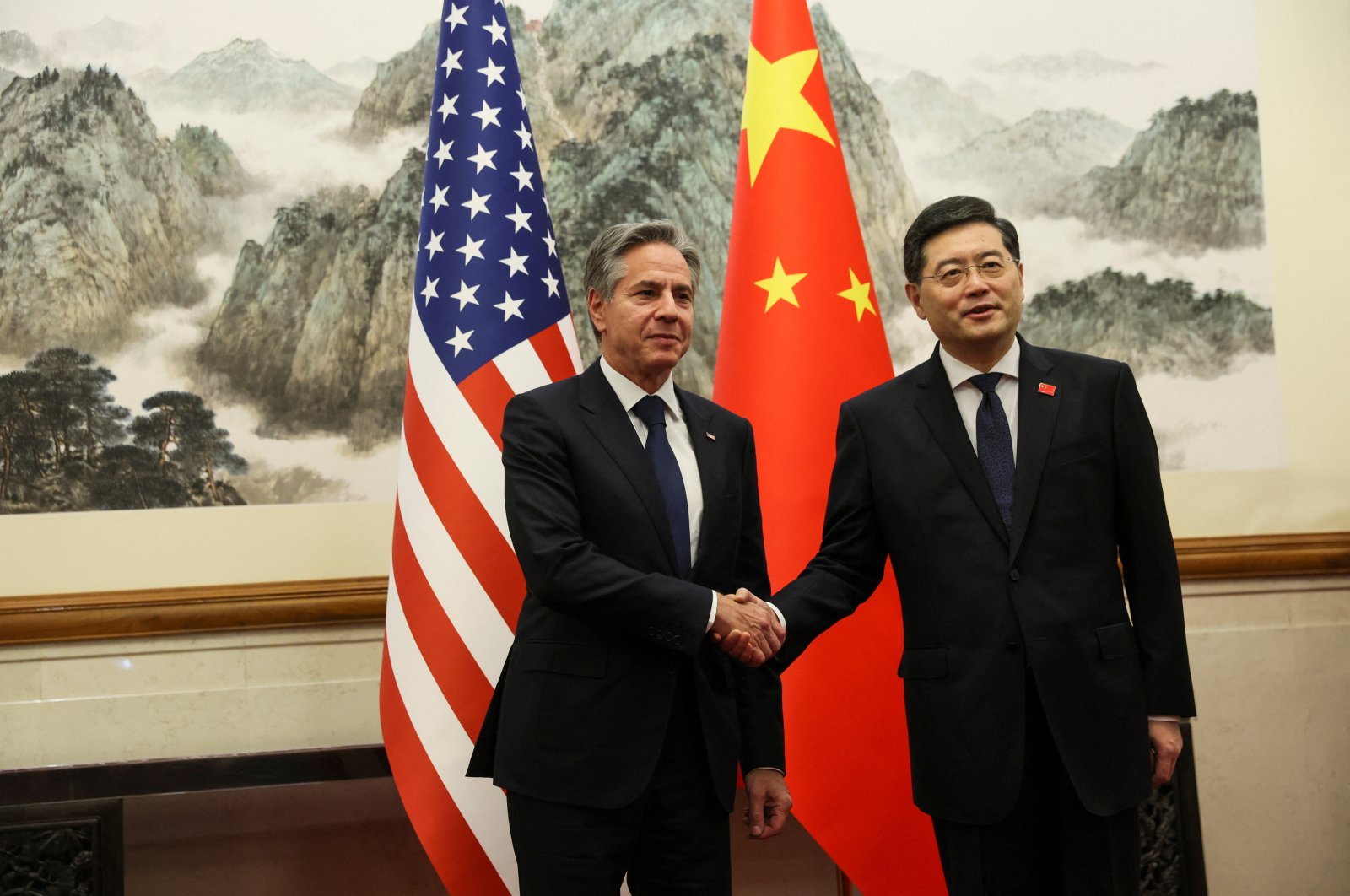
U.S. Secretary of State Antony Blinken met with his Chinese counterpart Qin Gang to kick off a crucial two-day trip to Beijing on Sunday.
Chinese state television showed the two top diplomats and their delegations greeting each other and sitting across from each other at two long tables in Beijing's Diaoyutai State Guesthouse.
Nothing was initially disclosed about the content of the talks. The pair was also due to have dinner later in the day.
A series of meetings with high-ranking government representatives are planned before Blinken – the most senior U.S. official to visit China in years – leaves Monday.
It remains unclear whether he will meet with Chinese leader Xi Jinping.
Blinken is on his first visit to China since taking office in 2021, a period when the U.S.-China tensions have simmered.
He is making up for a long-planned trip that he canceled at short notice in February when a diplomatic crisis erupted with the discovery of what Washington said was a Chinese surveillance balloon over U.S. territory.
Blinken said Friday he would speak "directly and candidly about very real concerns on a range of issues."
The goal, he said, was to establish "open and empowered communications," so that the two superpowers "responsibly manage" their relationship.
"Intense competition requires sustained diplomacy to ensure that competition does not veer into confrontation or conflict," he told reporters.
The U.S. and China have one of the world's most important bilateral relationships.
Those ties have been severely strained by a raft of issues, including China's neutrality over Russia's war in Ukraine, threats from Beijing against Taiwan and ongoing trade disputes in areas like advanced computer chips.
U.S. President Joe Biden's administration has singled out China as the "most consequential geopolitical challenge" facing the U.S.
Ahead of Blinken's visit, Chinese Foreign Ministry spokesman Wang Wenbin signalled Beijing's willingness to talk, but with conditions.
"One can't say one thing and do another," Wang said Friday. Washington should also "give up the illusion of dealing with China 'from a position of strength,'" he said.
"China and the U.S. must develop relations on the basis of mutual respect and equality, respect their difference in history, culture, social system and development path and accommodate each other's core interests and major concerns," Wang said.
Shortly before Blinken's arrival in Beijing, Biden on Saturday said he hoped to meet President Xi "over the next several months," adding he would want to discuss "legitimate differences" between China and the U.S. but also the areas in which the two superpowers can "get along."
Biden also downplayed the Chinese balloon incident, saying he does not believe that top Chinese leaders knew where the aircraft was or how it was outfitted.
"I think it was more embarrassing than it was intentional," Biden said.
